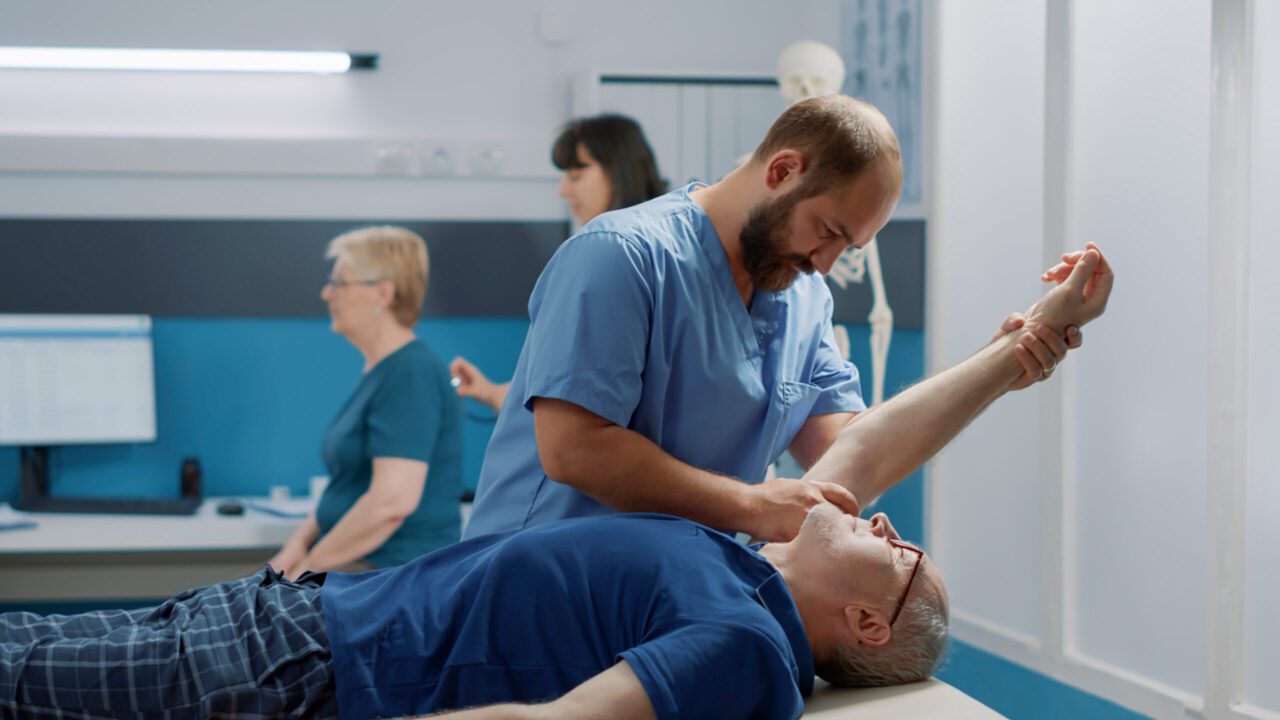Musculoskeletal Disorders Impact 124 Million Americans

Musculoskeletal Disorders Impact 124 Million Americans
During National Safety Month, a different safety topic will be highlighted each week of June. This week, Musculoskeletal Disorders (MSDs) are featured.
According to the Bone and Joint Initiative USA, nearly one in two Americans over the age of 18—or 124 million people—have an MSD.
According to the Occupational Safety and Health Administration (OSHA), work-related MSDs are among the most common disability claims.
Click to watch a video about MSD’s
MSDs refer to a variety of conditions that affect your joints, bones and muscles. According to the World Health Organization, there are more than 150 conditions that are considered MSDs, the most common being osteoarthritis, back and neck pain, fractures and systemic inflammatory conditions (e.g., rheumatoid arthritis).
Some MSDs, like sprains, strains and fractures are short-term conditions. Others, like arthritis, widespread pain disorders and inflammatory diseases are long-term or lifelong conditions.
The prevalence of MSDs varies depending on the condition. For example, some conditions like sprains, strains and fractures, are extremely common. Other conditions are much rarer.
Each MSD will present itself differently. In some cases, symptoms are mild and manageable. In other cases, symptoms interfere with daily tasks, such as walking or writing.
Common symptoms of MSDs can include:
Recurring pain
Stiff or weak joints
Noises in joints
Swelling
Dull aches
Decreased range of motion
Muscle weakness or atrophy
Redness
These symptoms can occur in any part of your musculoskeletal system, including your neck, back, hips, legs and arms.
The risks for developing certain MSDs are affected by the following:
Age—As you get older, your risk for MSDs increases.
Occupation—Depending on your job, your risk may increase. For example, engaging in repetitive motions or sitting in the same position all day will increase your risk for developing an MSD.
Activity level and lifestyle—Repetitive movements and overexertion can increase your risk for developing an MSD.
Family history—Certain MSDs can run in the family.
Be sure to talk to your doctor about your risk for certain MSDs.
Treatment for an MSD will vary based on the condition itself, but may involve physical therapy, rest, medication or surgery.
To learn more about how you can prevent injuries in the workplace, contact INSURICA today.







